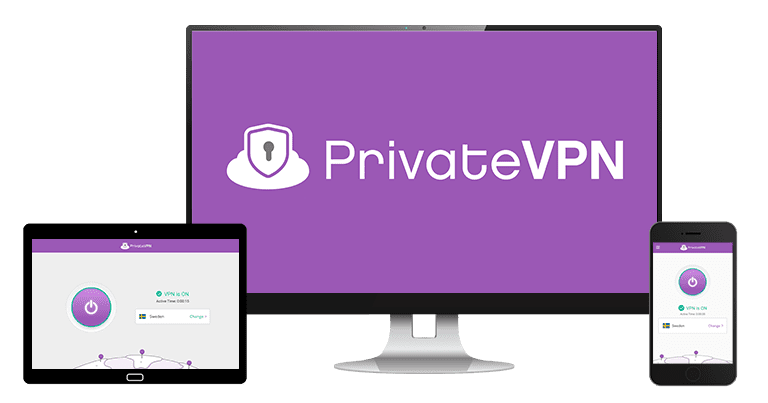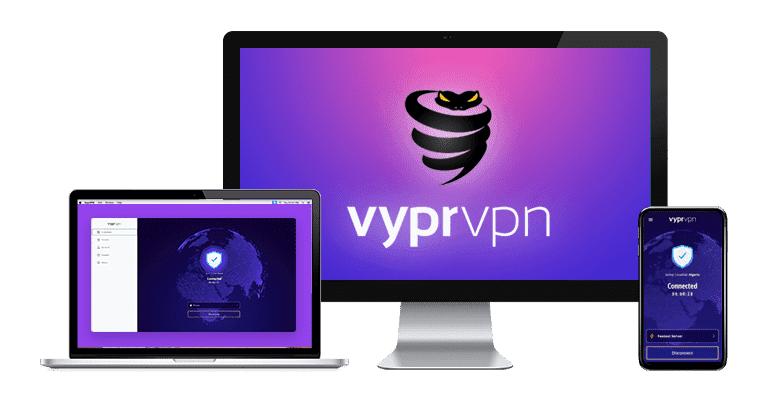Why VPNs are Banned in China and 3 That Still Work in 2024
The Chinese internet is notorious for strict censorship and blocks many sites. You can’t use Facebook, WhatsApp, Google, and other popular apps in China unless you have a VPN. The problem is that only a few VPNs can get past the Great Firewall of China, and officially-approved VPN providers are all under surveillance by the government.
My tests showed that ExpressVPN is the best VPN for China. Its high-end encryption and leak prevention keep your data safe on the Chinese web. You can subscribe to ExpressVPN risk-free and try it’s features for yourself. If you’re not satisfied, it’s easy to get a refund thanks to its 30-day money-back guarantee.
This is Why VPNs Are Illegal in China
China imposes strict online laws to control what you can do, say, and see on the web. Due to the government’s desire to influence public opinion and speech, you won’t be able to access the global internet or use most apps you rely on like Facebook, WhatsApp, Google, and YouTube.
Censorship is enforced with a state-of-the-art national firewall. VPNs are restricted because they threaten state control over online information by potentially bypassing the firewall’s filters and unblocking global apps and content. Some state-owned VPN providers operate legally in China, allowing banks and other firms to do business without constraints. But besides those, only a few commercial VPNs work inside the country.
ExpressVPN is one of the few VPNs that work in China because of its advanced anti-proxy detection technology that can bypass national internet blocks. Just remember that you need to download the ExpressVPN app is from outside the country because the ExpressVPN website is blocked from within China.
How Does China Censor the Internet?
1. Blocking IP Addresses
China’s firewall blocks the IP addresses of international websites like Facebook and Google, so these apps and pages won’t load. China’s Great Firewall can also block your internet traffic if it sees that your virtual IP address is associated with a non-approved VPN. This is why all VPNs need obfuscation technology to hide their VPN servers in order to work in the country.
2. Filtering URLs
Besides blocking IP addresses, China’s Great Firewall blocks URLs containing specific keywords. These trigger words prevent access to pages the government considers too controversial or subversive to allow. However, you might still be able to access other pages of the same website if trigger words don’t show up throughout the entire site.
3. Spoofing DNS
When you surf the web, the Domain Name System (DNS) establishes a connection called a DNS request between your device and the destination website. China’s Firewall can give false information to these DNS requests, preventing your preferred site from loading.
4. Deep Packet Inspection
Deep packet inspection is a method for processing data sent across a computer network. China’s Great Firewall uses deep packet inspection to look at unencrypted internet traffic for flagged keywords. It blocks any traffic containing these keywords by injecting “reset packets” that prevent you from visiting that website in the future.
5. Manual Censorship
Although China’s Great Firewall is mostly automated, the government hires IT experts to continuously search the internet for new websites to blacklist. For example, China has removed all non-approved VPN apps from the Apple App Store and Google Play Store.
VPNs Can Get Around China VPN Bans
Since China uses cutting-edge technology to ban proxy servers, getting your hands on a reliable VPN from inside the country is difficult. It’s easy to download state-approved VPNs, but these track your activities and won’t keep you anonymous.
Not all the top premium VPNs have advanced enough technology to get past China’s notorious firewall. Just in mind that using non-approved VPNs is illegal in China. The authorities there don’t chase individuals for violating the rule, but I still don’t condone doing anything in China that is against the official policy.
3 Easy Steps: How to Use a VPN in China
- Get a VPN that works in China. My #1 pick for China is ExpressVPN because of its cutting-edge obfuscation technology and superior security features.
- Install the VPN and connect. Make sure you download and install the VPN app before you travel, as you won’t be able to do it after you arrive in China.
- Browse freely in China. Once you’re connected to a server in a nearby country, it opens up global apps and websites from within China.
3 Best VPNs for China in 2024
1. ExpressVPN — Top-Notch Security and Privacy Features for Full Peace of Mind on the Web in China
Key Features:
- 3,000+ servers in 105+ countries to safely access the global web in China
- 256-bit military-grade encryption, DNS leak protection, obfuscation, and a kill switch to keep your online data safe and private
- 24/7 live chat, email, and a comprehensive knowledge base for technical support
- Works on 8 devices in China at once
- 30-day money-back guarantee on every subscription
ExpressVPN has fully-audited security and privacy features that keep you 100% safe online in China. Top audit firms including PwC, KPMG, and Cure53 have verified that it lives up to its claims of keeping your connection secure and your activities anonymous on all its servers.
To make sure it really keeps my data hidden, I did some DNS leak tests and ExpressVPN passed them easily. The test displayed an IP address associated with the server I had connected to, proving that my real IP address remained invisible.
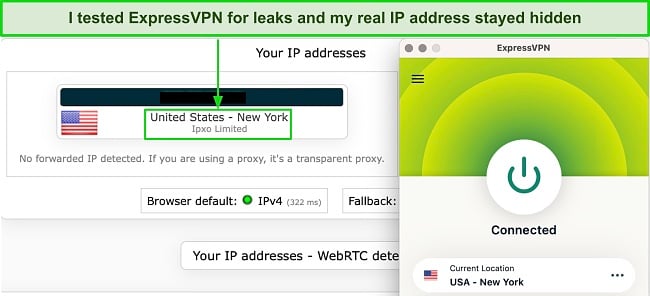
Server obfuscation technology is what makes ExpressVPN work reliably in China. This prevents any third parties from knowing you’re using a VPN. As a result, it can flawlessly get past VPN firewalls in high-censorship countries like China and the UAE.
Other features that keep connections secure and data private on the web in China include:
- Military-grade 256-bit encryption — All your internet traffic will be encrypted with a 256-bit cipher, which is the same level of security used by US government agencies
- Kill switch — Disconnects you from the internet if the VPN server connection gets unstable to prevent your IP address from being exposed in China
- TrustedServer Technology — RAM-based servers that physically can’t store any data, so your online activities stay private in China
- Strict no-logs policy — ExpressVPN doesn’t store any data, a claim that has been audited and verified by PwC and other top firms
- Based in the British Virgin Islands — This jurisdiction is unbound by any data retention laws and doesn’t conduct web surveillance
- Threat Manager — Adds an extra layer of protection by blocking websites and apps from tracking you on macOS, iOS, and Linux
Having over 3,000 servers in more than 105 countries gives ExpressVPN phenomenal unblocking capabilities from within China. Its large network provides access to servers in most geo-blocked platforms. Travelers to China can use ExpressVPN to access geo-restricted platforms like Netflix US and others like:
| Amazon Prime Video | Vudu | Paramount+ | Peacock |
| HBO Max | Disney+ | Showtime | Sling TV |
| Hulu | Discovery+ | BBC iPlayer | Kodi |
P2P-supported servers mean that ExpressVPN’s entire network lets you torrent files in China. You get blazing-fast download speeds even on ExpressVPN’s maximum of 8 connected devices. I tested it by downloading a 4GB copyright-free movie via uTorrent after connecting to an ExpressVPN server in Japan, and it finished in under 16 minutes. Just keep in mind that I don’t condone using a VPN to break the law or violate copyright, so you should only use VPNs in China for legal and approved activities.
A drawback of ExpressVPN is its higher price compared to other China VPNs. However, it’s also one of the few VPNs that work flawlessly in the country and has the fastest speeds. Plus, the 1-year + 3 months subscription has a discount of 49% with a monthly price of $6.67.
The best part is you can buy ExpressVPN for China in confidence as it’s backed by a 30-day money-back guarantee. If unsatisfied, you can claim a full refund. I tested its return policy myself — submitting a refund request was easy via 24/7 live chat, and I got my money back in just 4 days.
2024 Update! ExpressVPN has dropped prices for a limited time to a crazy $6.67 per month for the 1-year plan + 3 months free (you can save up to 49%)! This is a limited offer so be sure to grab it now before it's gone. See more information on this offer here.
2. PrivateVPN — Stealth Mode Easily Bypasses the Great Firewall of China Anonymously
Key Features:
- Over 200 servers in more than 63 countries for easy access to global sites in China
- Military-grade 256-bit encryption, server obfuscation, kill switch, and leak prevention let you access the web securely and privately in China
- Live chat, email, knowledge base, and remote desktop support options
- Allows 10 connections simultaneously
- Includes a 30-day money-back guarantee
PrivateVPN has a dedicated Stealth mode that seamlessly bypasses Chinese firewalls, using a Shadowsocks proxy to easily escape national VPN filters. This enables access to the global web from within China and keeps the connection anonymous.
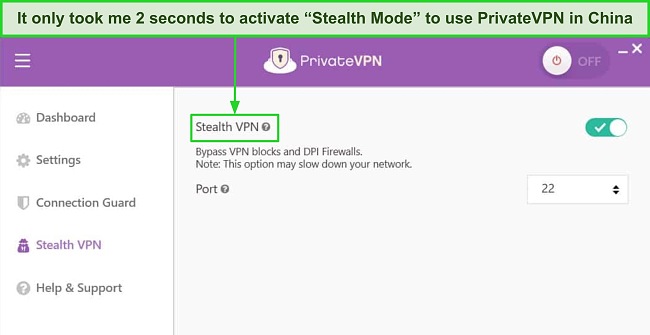
In addition, PrivateVPN offers the following security features to keep data safe and private on the web in China:
- Nearly impenetrable encryption — I use advanced 256-bit protocols to encrypt your data, guaranteeing that your connection stays hidden from potential hackers in China.
- Leak protection — I ran several tests and proved PrivateVPN hides my IP address, so your data won’t be exposed using apps or websites in China
Another plus to PrivateVPN’s security and privacy is that it owns its entire network, removing the need to trust third-party server providers. This makes it less likely that anyone will compromise your data since only internal PrivateVPN employees have access to its facilities.
You can take advantage of PrivateVPN features in China on up to 10 of your devices. It works on all major operating systems and I could easily set it up on my Windows laptop, Macbook, iPhone, and Android phone in just 2 minutes each. It also works on platforms like Linux and many routers, but installation is significantly more technical. Finding the fastest server is simple in its apps — just use the large button on the main screen. The VPN only took 3-5 seconds to connect.
All 200 PrivateVPN servers support torrenting in China with consistently fast speeds. During my tests, they never dropped more than 20% from my baseline internet performance. In addition to fast downloads, this was fast enough that US-specific platforms like HBO Max only had 8-10 seconds of initial buffering when accessed from China. The VPN can also unblock other TV and movie sites like:
| Amazon Prime Video | DAZN | Vudu | Showtime |
| Disney+ | 9Now | Hotstar | UKTV |
| HBO Max | Hulu | ESPN | BBC iPlayer |
One downside to using PrivateVPN is its slower speed on distant servers compared to ExpressVPN, which causes some initial buffering at the start of a stream when using US-based streaming platforms from China. Even so, you can stream in HD and UHD if you have high-speed internet.
I suggest buying PrivateVPN’s 3-year plan as it offers the highest discount of 85%. Making a long-term commitment isn’t always possible, but you can try PrivateVPN risk-free with its 30-day money-back guarantee and make sure it suits your needs.
2024 Update! PrivateVPN has dropped prices for a limited time to a crazy $2.00 per month with the 3-year plan (you can save up to 85%)! This is a limited offer so be sure to grab it now before it’s gone. See more information on this offer here.
3. VyprVPN — Chameleon Protocol Prevents Deep Packet Inspection in China to Access the Open Web
Key Features:
- More than 700 servers in 63+ countries, including several bordering China
- 256-bit military-grade encryption, NAT firewall, and a kill switch protect your data using the web in China
- 24/7 live chat, email, and knowledge base support options if you have questions
- Protect up to 10 devices in China at once
- Has a 30-day money-back guarantee policy
VyprVPN’s proprietary Chameleon protocol easily gets past blocks in China by avoiding deep packet inspection, one of the main ways China filters IP addresses. It also has military-grade encryption to protect devices from hackers while bypassing the Great Firewall. Paired with Smart IP, VyprVPN periodically changes your IP address to give you an extra layer of privacy from third parties on the Chinese web.
To further enhance your online security and privacy in China, VyprVPN offers:
- Secure VyprDNS — All your DNS requests go to VyprVPN instead of your Chinese ISP, so you can rest assured your data is well-protected in China
- NAT firewall — Blocks certain data requests that can reveal your identity on the Chinese web
The servers I tested were always fast enough for UHD streaming. Connecting to servers located at a considerable distance, I observed a reduction in speed compared to those in close proximity, experiencing performance declines of as much as 28% from my usual connection. Nonetheless, this merely led to a slight delay lasting a few seconds during buffering. Furthermore, VyprVPN possesses the capacity to unlock most geo-blocked platforms, encompassing:
| Disney+ | Kodi | ESPN | Paramount+ |
| HBO Max | Sling TV | Discovery+ | Peacock |
| Amazon Prime Video | Sky Sports | YouTube TV | Showtime |
Speeds were consistent even on VyprVPN’s limit of up to 10 devices in China when I tested it on major platforms like Windows, macOS, Linux, iOS, and Android. You can also set the VPN up on your smart TV, router, or streaming media consoles like Roku.
The only downside of VyprVPN is that a third-party audit revealed some minor issues with its privacy policy, but it promptly fixed them. I’m happy to see that VyprVPN responds to potential security and privacy issues immediately, and it hasn’t had any other problems since.
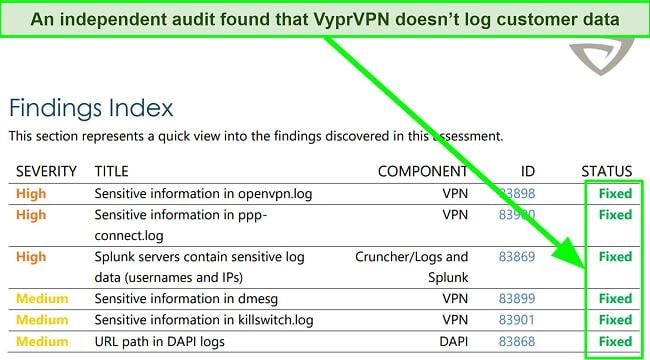
You can choose from 2 subscription types — the 1-month or 2-year options. I’d recommend VyprVPN’s 2-year plan because it offers a discount of 70%. However, VyprVPN also offers a fair price for its monthly plan, making it one of the best month-to-month VPNs. All its plan options are a great deal for its firewall-friendly Chameleon protocol and strong unblocking capabilities in China.
If you want to use VyprVPN without risk, it offers a 30-day money-back guarantee. The cancellation process is straightforward. I submitted my refund request to a live chat agent and got my money back within 5 days.
FAQs About VPNs in China
Can China track VPNs?
Yes, but not the VPNs on this list. China’s internet censorship is notoriously difficult to get past, even with a VPN — only a few can manage the task. All traffic on government-approved VPNs is closely monitored, which makes them useless for protecting your privacy.
Only the top VPNs for China like ExpressVPN can prevent tracking in China. They have obfuscation technology that makes it impossible for third parties to see anything you use them for, even in countries with powerful web tracking capabilities.
My VPN isn’t working in China. How do I fix it?
Are there ways to bypass blocks in China other than with a VPN?
Yes, but using a top-tier VPN like ExpressVPN is the best way to ensure complete online anonymity and safety in China. You can also use the Tor browser with Obfsproxy. Tor is a special web browser that can access a parallel internet, but to use it in China requires Obfsproxy since access to the Tor network is blocked. Combining Tor with a VPN gives you even better protection.
Apart from that, there’s a freeware anti-censorship program called Ultrasurf. Ultrasurf is a proxy (not a full-fledged VPN) that only encrypts internet traffic on your browser. It works by changing its IP addresses thousands of times per hour to avoid being blacklisted on geo-blocked websites and in restrictive countries like China.
Are there safe and legal free VPNs that work in China?
Yes, but most free VPNs can’t get past China’s strict internet censorship. Many free VPN providers can’t afford advanced enough technology to evade anti-VPN filters used in countries like China or the UAE.
There are a couple of safe free VPNs that work in China, but they may have other limitations like small server networks or throttled speeds that make them impractical to use. That’s why I recommend you use a premium VPN like ExpressVPN because it works reliably in China with blazing-fast speeds and keeps your data private.
Final Thoughts About Using VPNs in China
Most VPNs are illegal in China, but the practice is common and no tourists have been detained for using them. Instead, China blocks VPNs technologically via its Great Firewall. However, a premium VPN can help you protect your online privacy and also keep you safe from hackers and other online threats while on the Chinese mainland.
After comprehensive research, I found that ExpressVPN is the best at unblocking the global web in China. Its server obfuscation bypasses China’s Great Firewall while providing some of the industry’s strongest security and privacy features. You can also buy ExpressVPN in confidence as it’s backed by a 30-day money-back guarantee. If unsatisfied, it only takes a couple of minutes to get your refund approved via live chat.


